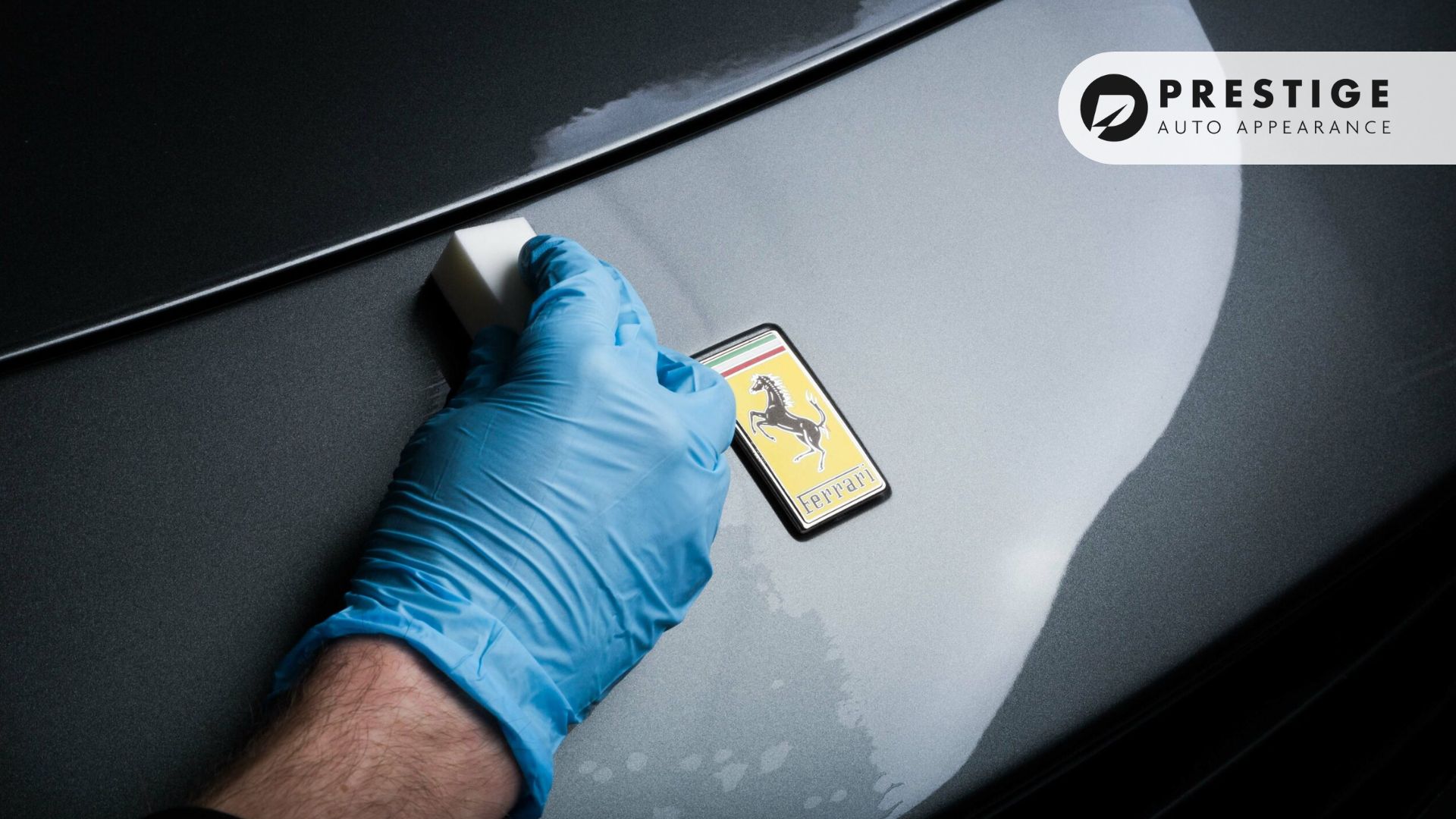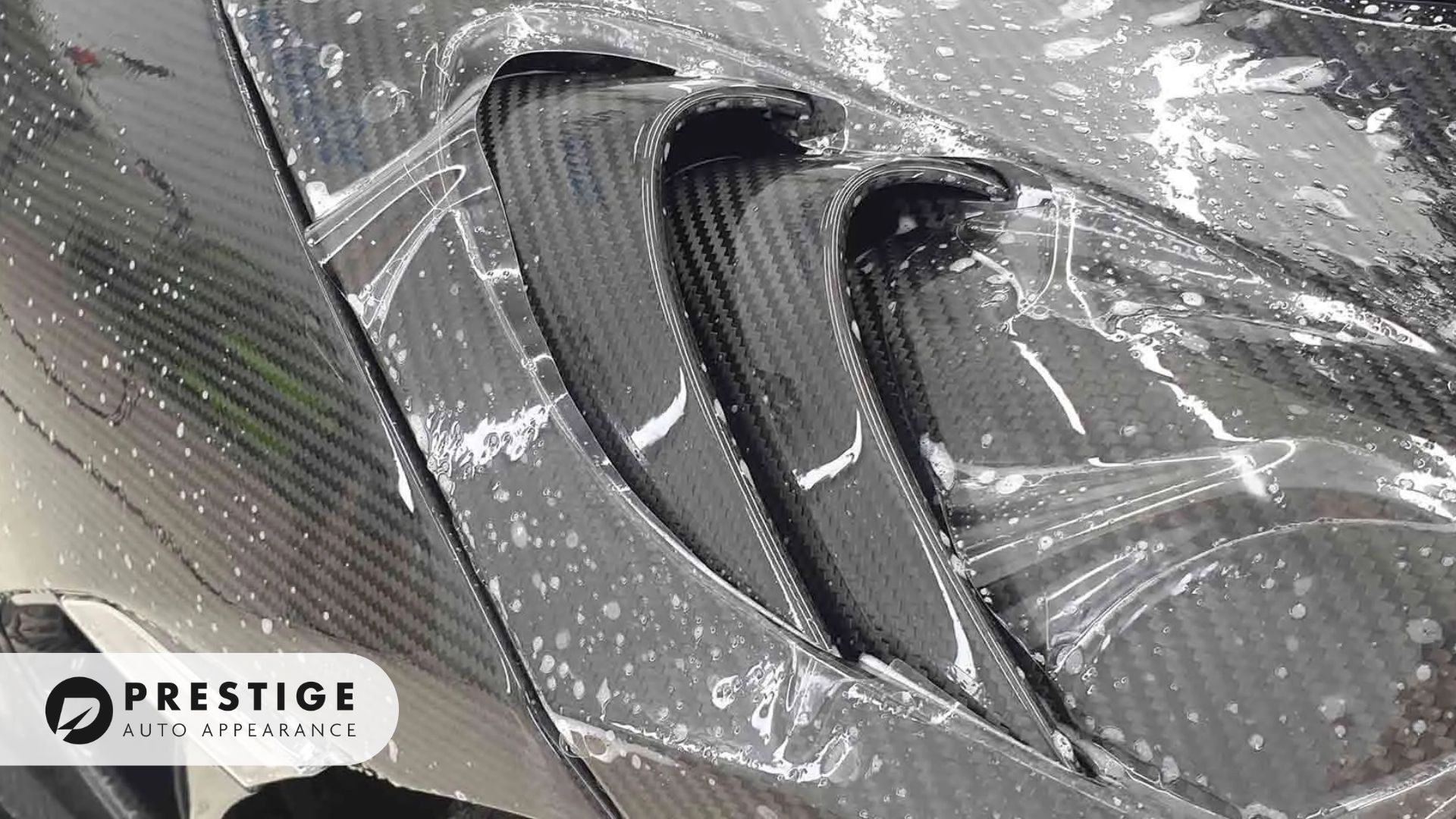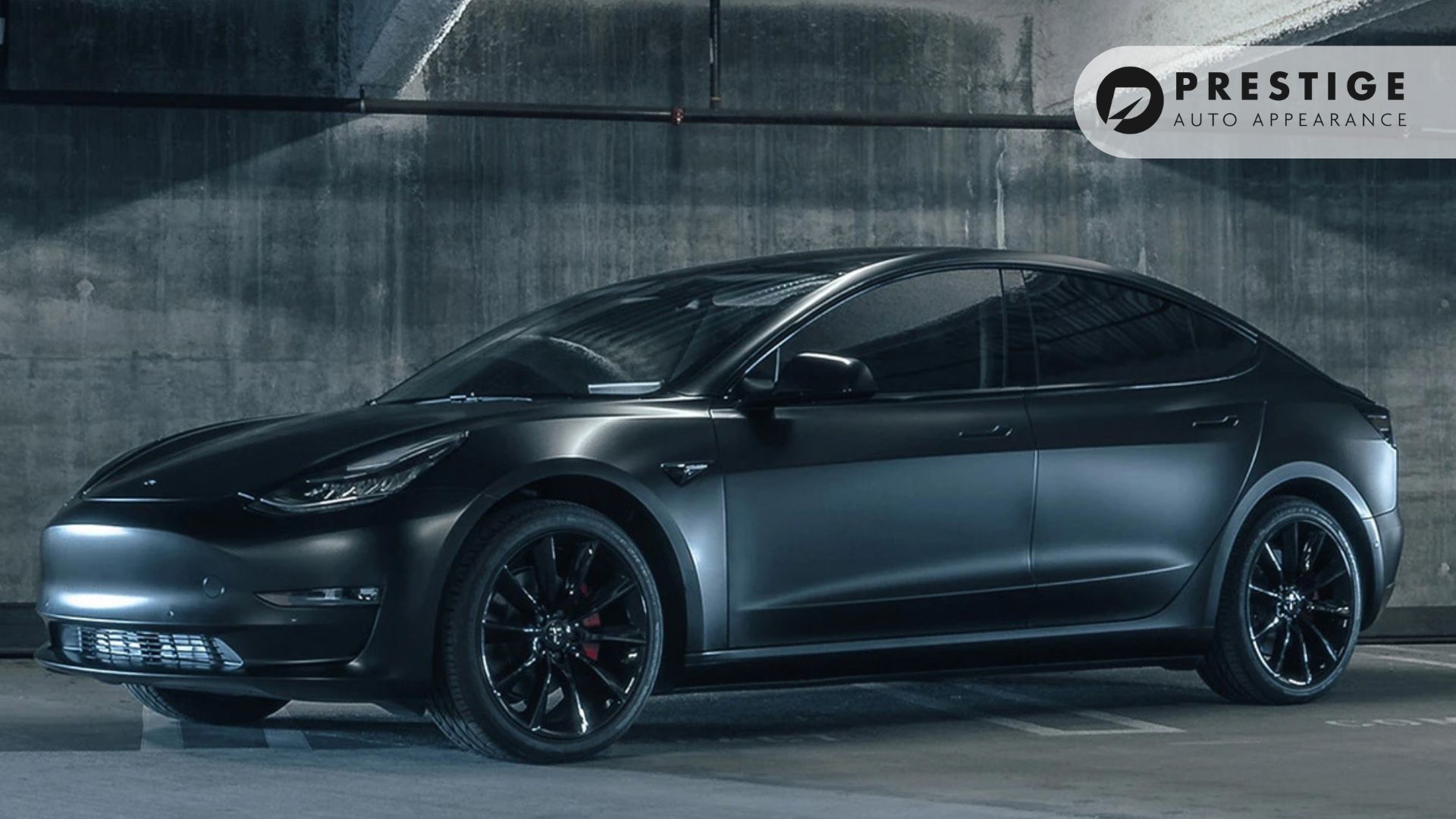If you live in Pennsylvania, you know how quickly the seasons can turn on your car’s exterior. From icy, salt-covered roads in the winter to scorching sun and humidity in the summer, our state puts vehicles through a lot. These environmental conditions don’t just affect how your car looks—they slowly wear down the paint, trim, and finish over time.
That’s exactly why we recommend ceramic coating as a smart, long-term solution for protecting your vehicle. At Prestige Auto Appearance, we’ve seen firsthand how ceramic coatings help local drivers preserve their cars year-round, without the stress of constant upkeep.
What Is Ceramic Coating?
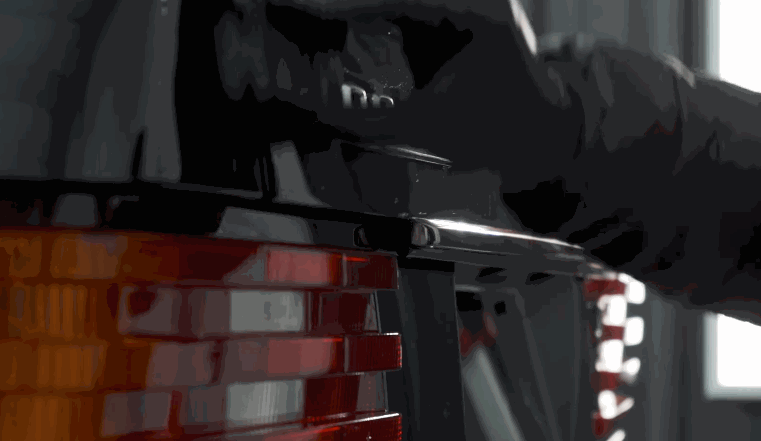
Ceramic coating is a liquid polymer applied by hand to a vehicle’s exterior. Once it cures, it chemically bonds with the factory paint, creating a layer of protection that’s both hydrophobic and highly durable. Think of it as a long-lasting shield that defends your car against the elements.
Unlike traditional waxes or paint sealants, which last only a few weeks or months, ceramic coatings offer protection that can last years when properly maintained. They don’t just sit on top of the paint—they bond to it, creating a more resilient barrier against contaminants.
However, there are a few common myths we like to clear up:
- It doesn’t make your car bulletproof. Ceramic coating won’t stop rock chips or deep scratches.
- It doesn’t eliminate maintenance. You’ll still need to wash your car, but the job becomes easier and less frequent.
- It’s not just for luxury vehicles. Any car exposed to Pennsylvania’s unpredictable weather can benefit from it.
Pennsylvania’s Weather and Road Conditions: A Real Threat to Your Car’s Finish
Our climate in Pennsylvania is tough on cars. Each season brings its own set of challenges:
- Winter in places like Scranton, Erie, and Pittsburgh means snow, ice, and heavy use of road salt. That salt might keep the roads drivable, but it’s extremely corrosive to your paint, trim, and undercarriage.
- Spring brings pollen and tree sap, especially in more wooded and suburban areas like Doylestown and Lancaster. These natural contaminants can stick to your paint and leave behind stains or etch marks if not removed promptly.
- Summers in Harrisburg and Allentown can hit high temperatures, and with that comes intense UV radiation. Constant sun exposure fades your vehicle’s color and can lead to oxidation of unprotected surfaces.
- Sudden storms and muddy roads are also common in rural Pennsylvania. If you regularly drive through countryside or farmland, your vehicle is likely exposed to dirty splashback and debris that can scratch or dull the finish over time.
This is exactly why we believe ceramic coating isn’t just a cosmetic choice—it’s practical protection that keeps your car looking sharp and shields it from everyday damage specific to our region.
Long-Term Benefits of Ceramic Coating in This Region
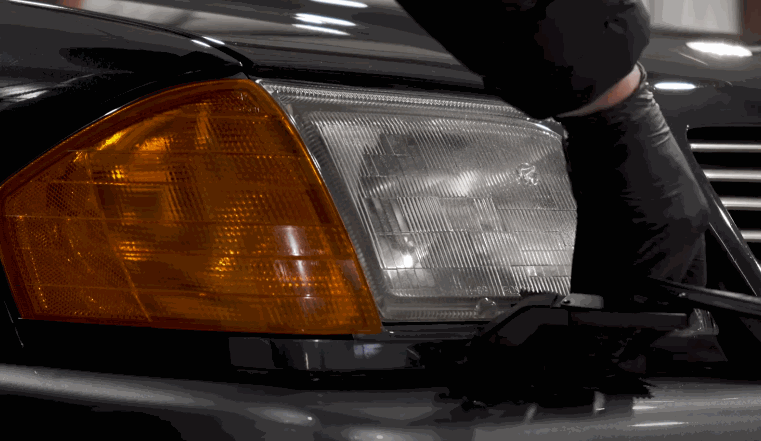
Living in Pennsylvania means your car faces everything from snowstorms in January to heat waves in July—and ceramic coating rises to meet those challenges. These are some of the most important long-term benefits we’ve seen in action across the state:
Protection Against Road Salt and De-Icers
During Pennsylvania winters, road crews rely heavily on salt and de-icing chemicals to keep highways and local roads safe. While that’s great for driving, it’s brutal on your paint. Ceramic coating forms a chemical-resistant layer that helps prevent oxidation, corrosion, and chemical etching caused by this harsh exposure—especially in cities like Erie or Pittsburgh, where winter road treatment is a constant.
Defense from UV Rays and Fading
When your car sits outside in places like Harrisburg, Allentown, or even suburban driveways, the summer sun can quickly take a toll. Ceramic coating adds a UV-blocking barrier that reduces oxidation and keeps your paint from fading. Whether it’s a bold red finish or a sleek black exterior, we’ve seen this coating help preserve vibrancy for years.
Easier Cleaning and Maintenance
Ceramic coatings repel dirt, pollen, and everyday grime. That means less buildup after a highway drive and fewer headaches in spring when pollen counts soar across places like Doylestown or Lancaster. Many of our clients say that post-coating washes take half the time—and look twice as good.
- Bugs don’t stick as easily to the front end.
- Tree sap and bird droppings are less likely to etch into the surface.
- Dust and mud rinse off with minimal effort.
Hydrophobic Properties and Water Spot Resistance
One of the most noticeable effects after application is the beading. Water instantly slides off, which helps during those sudden downpours or after parking outside during a storm. This hydrophobic behavior means fewer water spots and a cleaner finish even when nature throws a curveball.
Long-Term Paint Preservation and Increased Resale Value
Because ceramic coating slows down the paint’s natural aging process, your car maintains its glossy look much longer. That translates into higher resale or trade-in value. Whether you plan to sell in a few years or just want to drive a car that still looks like new, ceramic coating is a solid investment. At Prestige Auto Appearance, we’ve worked with drivers who came back years later with paint that still looked showroom-ready thanks to the protection we applied.
Is Ceramic Coating Worth It Compared to Alternatives?
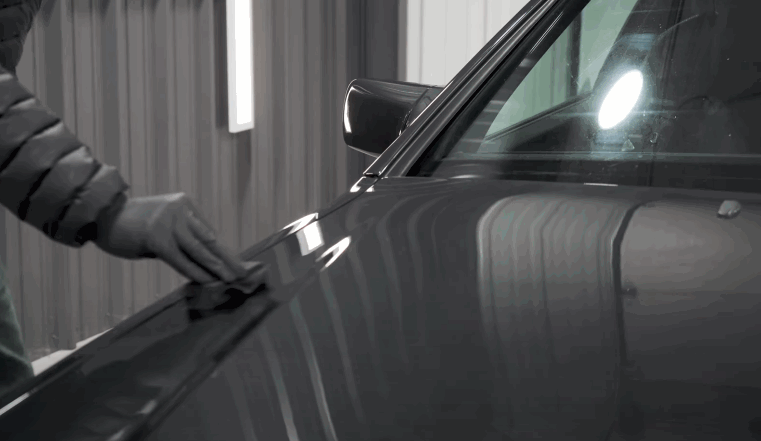
This is the question we hear most often—and it’s completely valid. When comparing ceramic coating to traditional wax or paint sealants, here’s what you need to consider:
1. Cost Over Time
- Wax might seem cheap up front, but it needs to be reapplied every few weeks or months.
- Sealants last longer—maybe a few months—but still wear down quickly under Pennsylvania’s weather swings.
- Ceramic coating is a higher upfront investment, but it can last up to five years or more with proper care, which ends up saving time and money in the long run.
2. Durability
- Wax melts away in high summer heat or gets stripped during winter washes.
- Sealants break down from UV rays and road grime.
- Ceramic coating stays put, shielding your car through snowstorms, UV rays, road salt, and pollen season.
3. Protection Quality
- Wax offers shine but minimal actual protection.
- Sealants help with minor repellency, but don’t offer much chemical resistance.
Ceramic coatings offer superior hydrophobic performance, chemical resistance, and long-term gloss retention—plus added UV protection and ease of cleaning.
Yes, the upfront price tag can feel like a leap. But we’ve had countless customers tell us that once they experienced the difference, they wouldn’t go back. For drivers who want peace of mind through all four seasons in Pennsylvania, ceramic coating pays for itself—not just in protection, but in reduced maintenance and better long-term vehicle value.
The Importance of Professional Installation in Pennsylvania
Ceramic coating is only as good as its installation. That’s why experience truly matters. From proper surface preparation to controlled curing environments, every step needs to be done with precision. If the prep isn’t right—if there’s leftover residue, swirls, or unseen contaminants—the coating won’t bond correctly, and the results won’t last.
In Pennsylvania, working with local professionals adds another layer of value. We know what your car goes through here—road salt in the winter, tree sap in wooded neighborhoods, high humidity in the summer. That local context matters when choosing the right coating and applying it the right way.
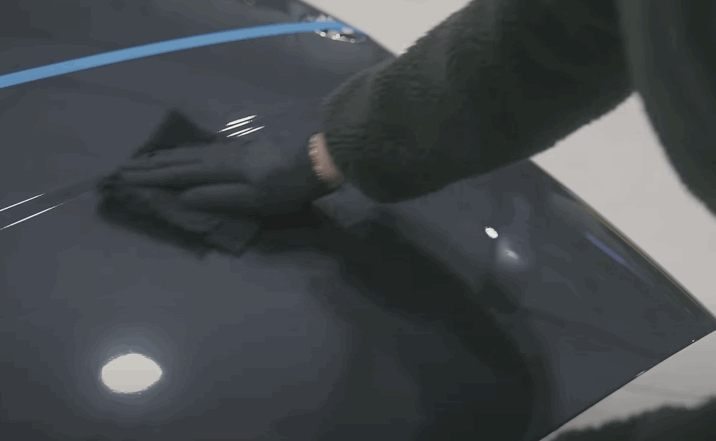
If you’re considering ceramic coating, here’s what to look for in a shop:
- Proper certifications and product knowledge (not all coatings are created equal).
- A solid local reputation—check reviews, portfolios, and before/after photos.
- Warranty options that back up the work and give you peace of mind.
At Prestige Auto Appearance, we pride ourselves on our process and transparency. Every vehicle gets the same care we’d expect for our own.
Maintenance Tips to Maximize the Coating’s Lifespan
Ceramic coating makes upkeep easier—but maintenance still plays a key role in keeping that shine and protection strong. Here’s how to take care of it the right way:
- Use pH-neutral shampoos and soft microfiber mitts or towels to avoid scratching the coating.
- Skip the automatic car washes with spinning brushes—they can damage the coating and leave swirl marks.
Seasonal Maintenance Tips for Pennsylvania:
- Winter: Do extra rinses during salt-heavy months to prevent buildup on coated surfaces.
- Spring: Watch for pollen and sap, and keep a detailing spray handy.
- Summer: Apply a ceramic booster spray every few months to refresh the hydrophobic layer and gloss.
- Fall: Keep the surface clear of decaying leaves to prevent staining.
A little care goes a long way in making your ceramic coating last—and keeping your car looking like new through every season.
Why It’s a Smart Move for Pennsylvania Drivers
Ceramic coating isn’t just about having a shiny car—it’s about protecting your investment, simplifying maintenance, and facing Pennsylvania’s unpredictable weather with confidence. Between road salt, UV rays, pollen, and sudden downpours, your vehicle needs more than just the occasional wax to stay in top shape.
Want to learn more or see if ceramic coating is right for your car? Reach out to us for a consultation. We’re here to help you protect what you drive.
If you want real, long-lasting protection that fits our climate and roads, ceramic coating is absolutely worth it. At Prestige Auto Appearance, we’ve seen firsthand how it transforms the way people care for their cars.
Whether you’re in Erie bracing for winter, commuting daily through Allentown, or parking under trees in Lancaster—ceramic coating helps your vehicle handle it all.



